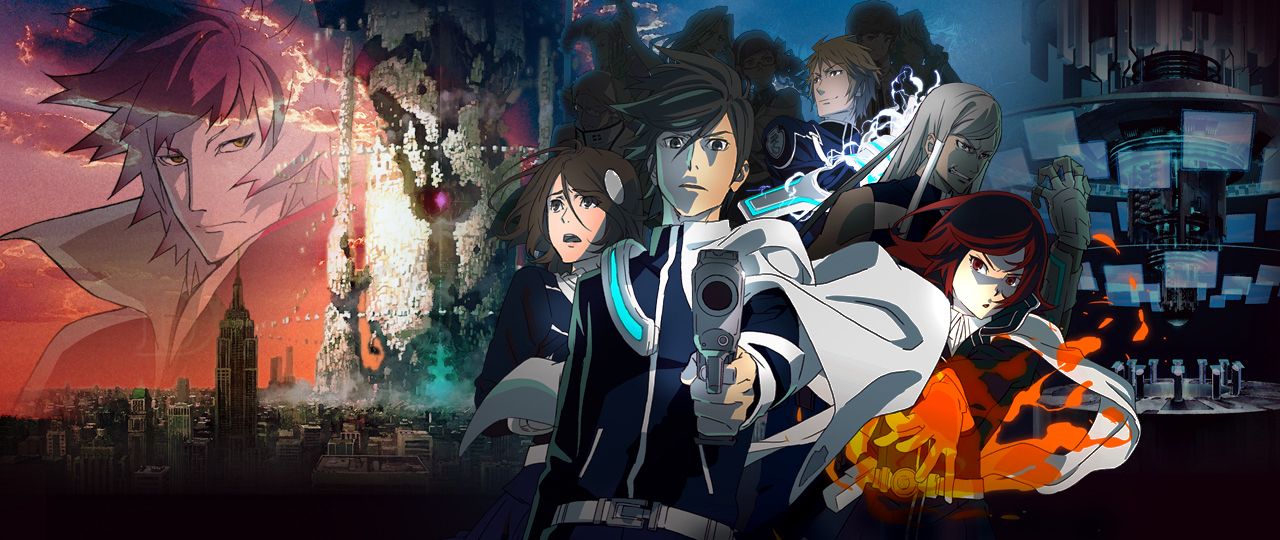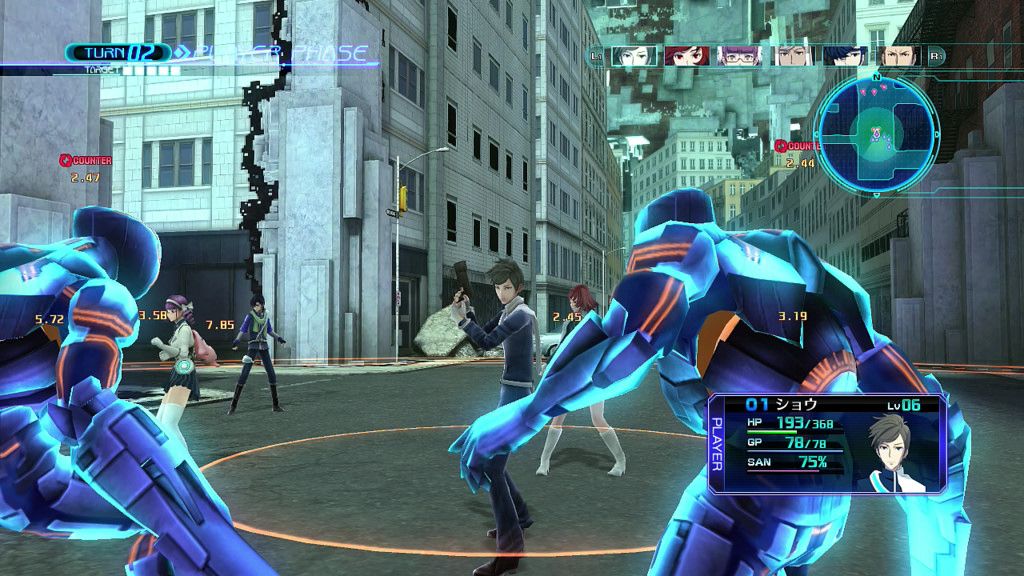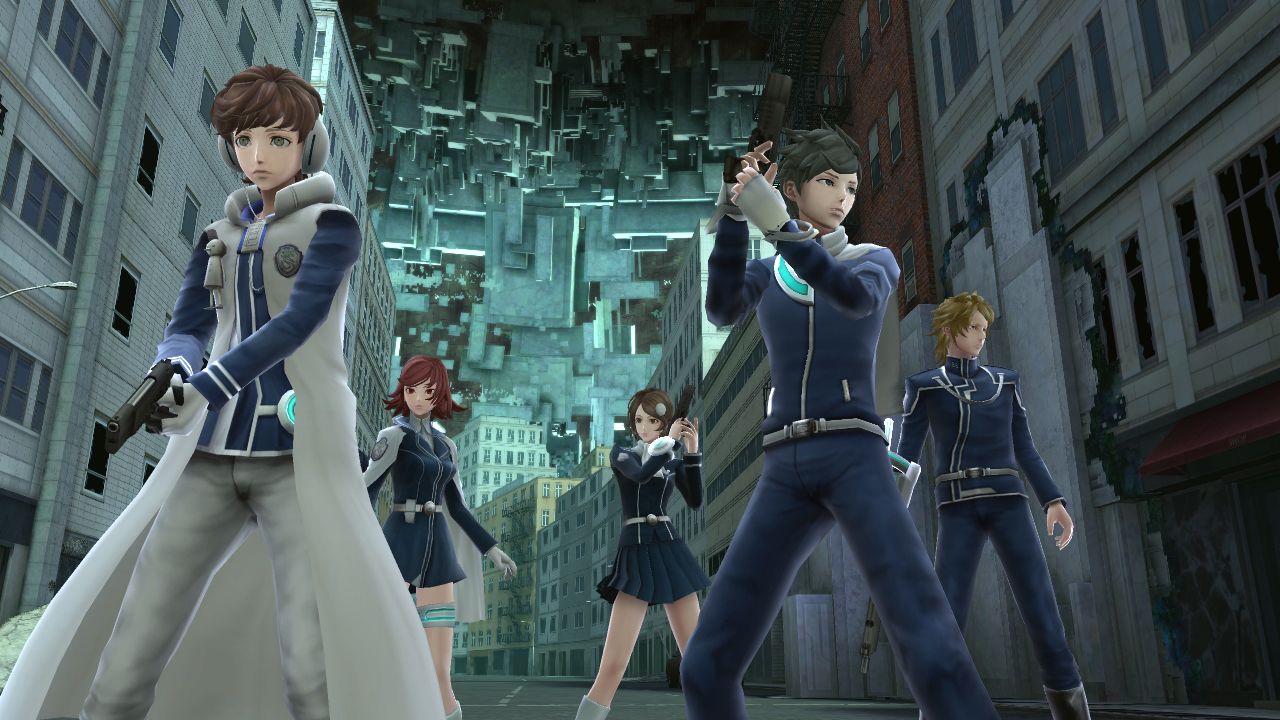In the grand scheme of things, the JRPG genre has often followed a fairly typical plot structure: a young, optimistic hero/heroine chosen by fate, given a sword/magical powers, and thrust into a world of monsters and danger around every corner and trying to save the world.
Whether it's Final Fantasy, Pokemon, or countless others, it's a tale we've heard many times before, no?
To that end, Atlus and developer Lancarse's Lost Dimension doesn't stray from the tale we've heard before, but does introduce a clever twist on the genre that, in many ways, plays as much as a detective mystery as it does a more classically-minded JRPG.
Lost Dimension sets players into the role of the 18-year-old Sho Kasugai, a member of the task force S.E.A.L.E.D. that makes it their mission to eliminate a mysterious force seeking to end the world in as catastrophic a way possible, known only to the group as "The End."
It then becomes the task of Sho and his 11 team members to find... well, an end to The End, and to prevent utter chaos and destruction.
Where the set-up of Lost Dimension is a bit typical in the line of most JRPGs, its execution is killer (yes, pun intended).
In a set-up more along the lines of a mystery title, throughout the course of the game players will be forced to uncover a traitor in their group and end up walking a fine line between catching a lier red-handed or taking the possible risk of killing an innocent party member.
While a simple idea, the central concept of adding an almost "whodunit" quality in the game's RPG formula is incredibly clever, not unlike popular board games such as The Resistance or Coup that force players to identify others that may not be who they say they are.
In this case, one amongst your group is a traitor leaking information to The End, and figuring out the identity of the traitor is almost just as much fun as the game's core experience, with the traitors being randomized during each playthrough surely adding to the replayability of an already deep RPG.
To take out The End, Sho and his team are sent into a mysterious tower and progress level-by-level through various story missions with a squad of six characters, while other side missions and objectives are also available along the way.
Taking turns between playable characters in a turn-based, action-oriented RPG structure, Lost Dimension builds heavily not only on your own trust of each individual member of Sho's team, but with each of the team members also trusting each other at the same time.
Despite the threat of a Traitor in the midst, players must also work to maintain trust between fellow party members, with the characters' trust directly tying in to the game's combat and skills. \
As Sho's team members trust and like each other more, those bonds tie into unlocking new skill sets and support attacks, thereby increasing the amount of strategy that players will have to work with out on the battlefield.
By itself the turn-based combat is fun and enjoyable, though may not provide the same level of complexity that veteran RPG players are used to.
However, what Lost Dimension may lack in depth, it more than makes up for in character, as each team member is not only vividly drawn but unique.
Each of the party members features their own unique power or ability to make their individual talents valuable, not only allowing a wide variety of different combat variations but also forcing players to constantly switch characters in-and-out for new combat styles, and to draw closer to the group's traitors.
As players advance through each floor of the Tower, Sho and his team must gradually weed out the group's traitors that are randomized in progressing through each floor.
In this case, it ties in to nearly every aspect of both the character development and social features of the game, where even small conversations and lines of dialogue hold great importance in uncovering the traitor in each floor.
Along the way, Lost Dimension provides Sho with "Vision Points" he can acquire, which allows players to get a deep look into the consciousness of a team member for a closer tail on possible traitors, and more importantly catch snippets of conversations that they may not be so willing to share with other team members or out loud.
However, Vision Points are scarce, creating a dynamic where they become a precious, vital resource in either catching a suspected traitor, or at least in helping to thin out innocent team members.
While at first finding the traitor starts out simply enough, the later portions of the game can find you wracked with stress over eliminating the right (or wrong) traitor, and takes your relationship with these characters greatly to heart and mind.
Though the traitor dynamic provides the biggest hook to Lost Dimension (and appropriately so), it's not completely without its faults. In particular, the disappointment at gradually being forced to weed out members of your party over the course of the game can take its toll with the time that can be invested into their skills and abilities.
For the most part, though, the game remedies the gradual loss of party members by having fallen team members leave useful items that can be used to boost the skills of your remaining party.
On the other spectrum, the gradual uncovering of the traitor also ties in to your relationships with other teammates not only in who you believe is the traitor on each floor of the tower, but also in forcing the player to convince the rest of the group and earn their votes to eliminating the possible traitor.
It's another spin on the game's central twist forcing players to talk to characters and earn their trust, though after the first few rounds of sleuthing and deducing with fellow party members, it can become a bit of a repetitive chore. Likewise, the mechanic can be a bit unpredictable with teammates all too often being eager to distrust you and go behind your back.
Lost Dimension won't quite be the revelatory experience that hardcore RPG fans may be looking for with its suitable graphics and serviceable (if mostly unremarkable) soundtrack, but the typical JRPG trappings that surround it still hold a clever, addicting concept.
Where in other RPGs I would often look to my teammates as dependable, trustworthy friends, in Lost Dimension instead I had to look at them with consideration and tension that seeped into nearly every aspect of the gameplay.
What this title may lack in the more memorable qualities of classic RPGs, it more than makes up for with its clever gameplay and cast of characters -- while it may not be filled with grand, epic moments, Lost Dimension instead is filled with situations and events that will make you think twice.



